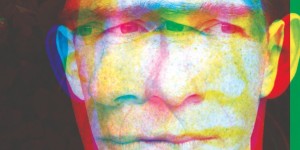 Music
Music
Q & A: Tame Impala's Kevin Parker on leaving limitations behind
by Richard Trapunski
January 22, 2013
On every successive Tame Impala release, Kevin Parker seems to retreat further and further into his own mind, exploring themes of loneliness, isolation, solipsism, and the inability to connect with others. Ironically, these explorations are forcing him more and more into the public eye.
Tame Impala’s latest album, the sophomore LP Lonerism, has forced its way out of the niche-y “psychedelic rock” bubble, and delivered on its promise to be a fixture on year-end lists. Though he’d rather spend his time surrounded by guitars, effects pedals, and vintage synths in his home studio, the Australian singer/songwriter is fielding more interviews than ever. We caught up with the long-locked studio wizard backstage at the Phoenix Concert Theatre in Toronto to talk synth-phobia, the difficulty of collaborating with others, and acting as the accidental messenger of Osama Bin Laden’s death.
AUX: In the past you’ve tried to do as much as you could with a guitar-drums-bass setup, using effects to simulate the sounds of synthesizers. Now you’re using actual synths. Did you have to get over an aversion to “non-rock” sounds?
Kevin Parker: It came pretty naturally, actually. I think part of the reason I hadn’t used synths until this album was because I hadn’t even really tried playing them yet. All I really knew was where I had heard them before in context, which was mostly ‘80s synth pop. I thought, hmm, that’s not really for me. I’d love to make those sounds, but the real thing isn’t really for me. And then I heard the real thing and it fucking blew me away. So I was like, okay, guess I’m using synths on the next album.
What changed your mind?
Just hearing them. But also realizing how many limitations I had put on myself. Mixing the album and working with a guy who was a big inspiration for me, [Flaming Lips’ go-to producer] Dave Fridmann, and hearing him talk about the way he does things. He giggled every time I told him not to use auto-tune or not to use anything synthetic. He would say “what’s the point? Why not just use whatever you can.” And I realized I was missing out on a whole world of potential.
You recorded a lot of this album at your home studio in Perth, Australia? Did it help to have the time and space to figure out all the new tools at your disposal?
Yeah, totally, but even the last album was pretty home studio-y. It was just that it wasn’t my house. But it was still just us setting up a whole bunch of shit in our living room and doing it ourselves, working whatever hours we want. But this time because it was my home, it could go on for longer than just seven weeks.
Does having the studio in your own house remove the separation between your work in Tame Impala and your non-musical life?
Well yes, it kind of just consumes you. In a good way, I guess. But eventually in a bad way. It can just drive you crazy.
Why? Because you want to get away from it, but you can’t?
No, you want to get even closer to it than you are able to. You’re always working to achieve something, like maybe a drum sound or a lead line or something, and the more you work on it the more you feel like you’re so close to coming up with the most magical thing ever. Of course, you never get there. It’s like heroin, like chasing the dragon or whatever. Not that I know what heroin’s like. It’s just one of those things. You can just drive yourself crazy trying to get closer and closer to this one ideal that’s not necessarily achievable.
Is Tame Impala still mostly just you writing and recording everything?
Mostly. [Bandmate] Jay [Watson] pitched in on a couple of songs, “Elephant” and “Apocalypse Dreams.” And he did some keyboard and piano, and a bit of other stuff.
Did producing for your girlfriend Melody Prochet and her project Melody’s Echo Chamber help you figure out how to work with others?
In a way. If Jay brought something in [on the Tame Impala album], I’d sort of take on the producer role, which is what I did for Melody. For Tame Impala I’m always kind of thinking artistically. In Melody’s Echo Chamber, I was just being the guy that does stuff as opposed to create stuff. It’s more of a hobby than a creative outlet.
But you’ve done other collaborations outside of the band. You play on a song on the Flaming Lips’ newest album, The Flaming Lips & Heady Fwends.
That was a pretty different experience altogether. I was actually at the studio where the Flaming Lips always record their stuff, doing my two weeks of mixing, and on the day I was leaving was the day they were coming to start recording. It was kind of a coincidence. Wayne [Coyne] saw me there and said “oh yeah, we should get Kevin on the recording.” So they set me up in a room with a bunch of guitar pedals and I just went wild on this song a few times, did some backing vocals, and that was it. Then my taxi arrived and I had to go. It all went down in just a few hours.
That seems like an interesting case, because though you’re ostensibly making the same type of music Tame Impala often seems worlds away from the Flaming Lips, like there’s less whimsy in what you’re doing.
What do you mean by whimsy?
That sort of jokey, playful spirit that you often hear in psychedelic music.
Oh, I see what you’re saying. That might be true, yeah. But at the same time, I don’t even know if I would call this album psychedelic. The lyrics are a bit more personal, more emotional. I definitely do feel like, even amongst our friends, I’m usually the one who takes it most seriously, who doesn’t want to write lyrics about weird animals and space creatures and that kind of thing, just random, crazy shit. I kind of just feel the need to, I don’t know, release my inner self a bit more.
Do you try to avoid the term psychedelic?
Not at all. I don’t try to avoid it because for me it has a meaning. The thing is it kind of depends how you want to take it. If you want to interpret it as something to do with the ‘60s, or just something that fucks with your head, that’s not necessarily it. But I do like it when I can create something that kind of makes you feel weird or dizzy, that one little moment in a song where you go “whoa, the world has just turned on an angle.”
Is that what you were going for with the song title “Music To Walk Home By”? To me it conjures up the thought of coming home from the bar with your headphones on, kind of lost in the music that only you can hear.
Yeah, totally. Not so much coming back from the bar, more coming back from school even, because I guess the album has got kind of a childish persona. That sacred time of walking home when you’re just sort of pondering life in a very abstract way.
The last time you played in Toronto, Osama Bin Laden was captured and killed. You announced it from stage and a lot of people cheered. It was so surreal.
That was so weird. A guy from the support band, Yuck, he kept yelling at me from the side of the stage. After a while I was like “what do you want, dude?’ And he says “you’ve got to tell the people Osama Bin Laden is dead.” At first I thought it was a joke or something. Even while I was saying it, I was thinking “alriggghht.”

This article originally appeared in the December 2012 Issue of AUX Magazine.
Download and subscribe for free in the app store.
Tags: Music, Interviews, AUX Magazine, Kevin Parker, Tame Impala





